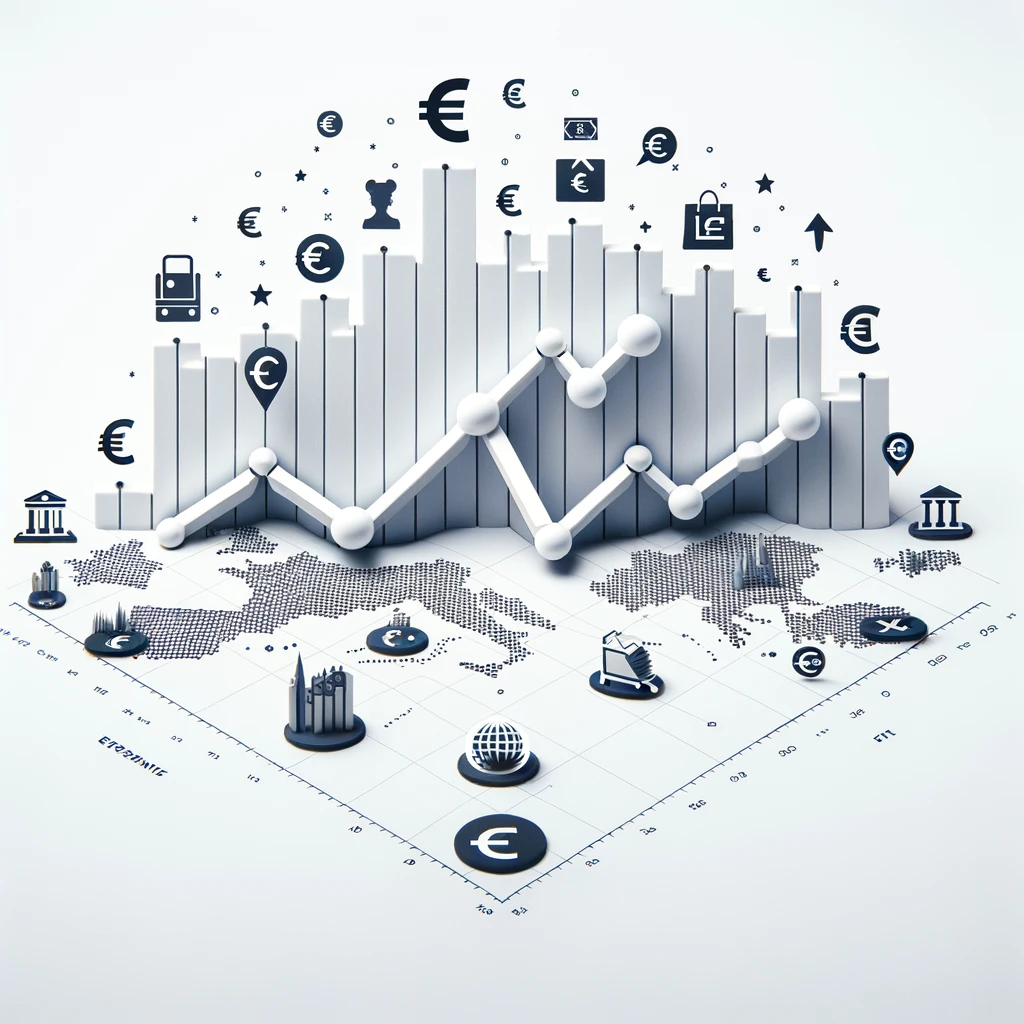Expect a sigh of relief across the Eurozone this Friday. Word on the street is, the latest data’s about to show a dip in the core inflation rate – yeah, the one that ignores the seesaw game of energy and food prices – to below 3% for the first time in a couple of years. This is big news, especially for the folks over at the European Central Bank (ECB) who’ve been biting their nails off ahead of their March 7 meeting, pondering over the right time to start slashing interest rates.
The Rollercoaster Ride of Eurozone Inflation Rates
Since peaking at a jaw-dropping 10.6% back in October 2022, the headline inflation rate in the Eurozone has been taking a steady dive. Economists, the kind who spend their days making predictions, reckon the annual price hikes will cool off from January’s 2.8% to 2.5% in February. But let’s not pop the champagne yet. This dip might not be enough to convince the ECB’s decision-makers that we’re close to hitting their sweet spot of a 2% inflation rate, an important threshold that could trigger rate cuts.
Peter Schaffrik from RBC Capital Markets dropped a truth bomb saying we’re witnessing “one of the last months where base effects will exert a significant drag” on inflation. Translation: the slowdown in inflation we’ve been cheering for might start dragging its feet. The minutes from the ECB’s latest pow-wow hint at a possible downward revision of this year’s inflation forecast come March. But it’s not all smooth sailing. The consensus is that easing off the pedal too soon could wipe out the progress made so far in taming inflation.
A Deep Dive into Consumer Expectations and Economic Indicators
Let’s talk expectations – not the kind you had for your last Tinder date, but what consumers are thinking about inflation and the economy. The ECB’s Consumer Expectations Survey for January 2024 revealed some interesting tidbits. For starters, folks think inflation over the past year was at 6.0%, down from 6.9% the previous month. They are a little less optimistic about the next 12 months and think inflation will rise a little.
When it comes to how much money people think they’ll make and spend, expectations for income growth haven’t budged, while guesses on spending growth have ticked up a notch. On the brighter side, consumers are feeling slightly less gloomy about economic growth and are somewhat optimistic about finding jobs or not losing the ones they have.
The housing market seems stable with expectations for home price growth unchanged. However, folks are eyeing a drop in mortgage interest rates over the next year, which could be good news for potential homebuyers. Speaking of buying, access to credit appears to be getting a smidge easier, with fewer people applying for credit recently.
There you have it – a deep dive into the Eurozone’s inflation drama and the economic vibes on the street. So, will the decline in inflation persist? What do you think?





